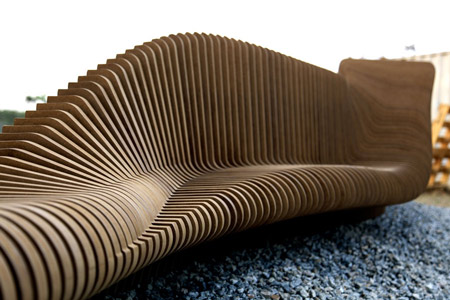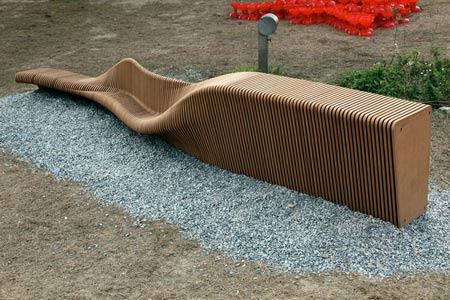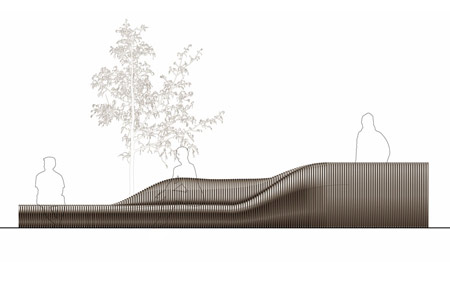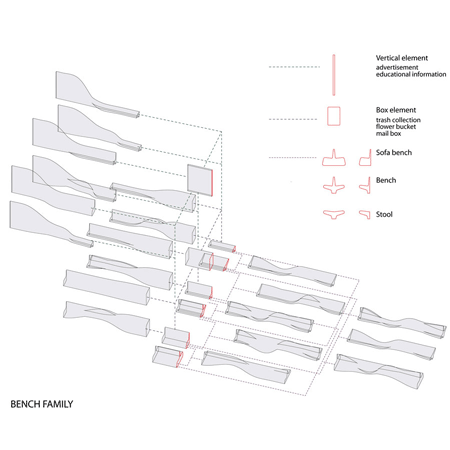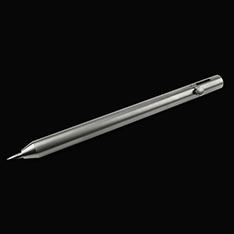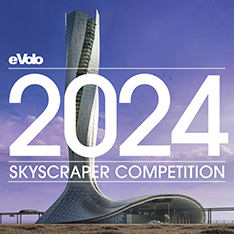Hong Kong’s urban furniture contains multiple functional objects. Each of them belongs to a different set of formal expression or is part of a different style.
While variation is obvious in the style mix of Hong Kong’s public furniture, there is a lack of uniformity in the formal expression that could foster a unique Hong Kong identity. This design proposal by Rocker-Lange Architects for a contemporary city bench seeks to understand the concept of street furniture as a holistic design problem. Instead of offering only one single static design, this scheme suggests multiple varying solutions that meet specific fitness criteria.
The project “Urban Adapter” is based on a digital parametric model. At its core the model utilizes explicit site information and programmatic data to react and interact with its environment. That way the model’s DNA structure is capable of producing a variety of unique furniture results.
Together they generate an endless family of new urban bench furniture. Rather than having a fixed form the members of the family can adapt to different site conditions and programmatic needs. While all of the designs have the ability to serve as a seating element, some have additional programmatic values added, such as recycling containers, flower buckets or billboards serving for advertisement or educational purposes.
The generated functional surface invites the user to new seating and communication arrangements and establishes a unique identity for the urban space of Hong Kong.

